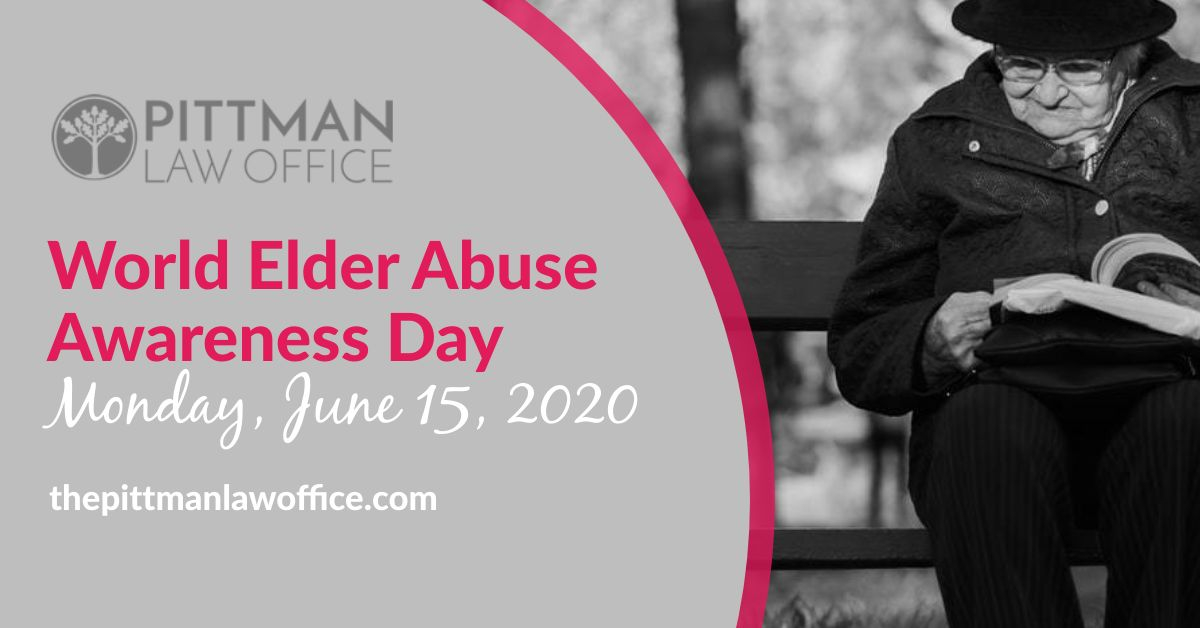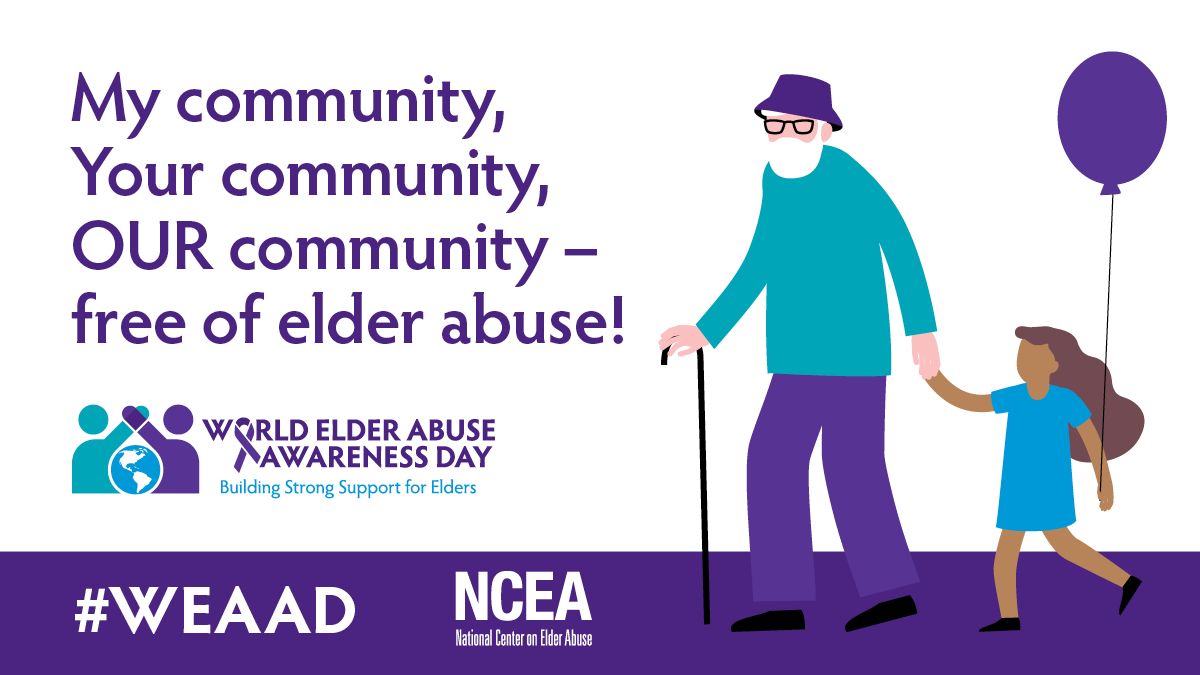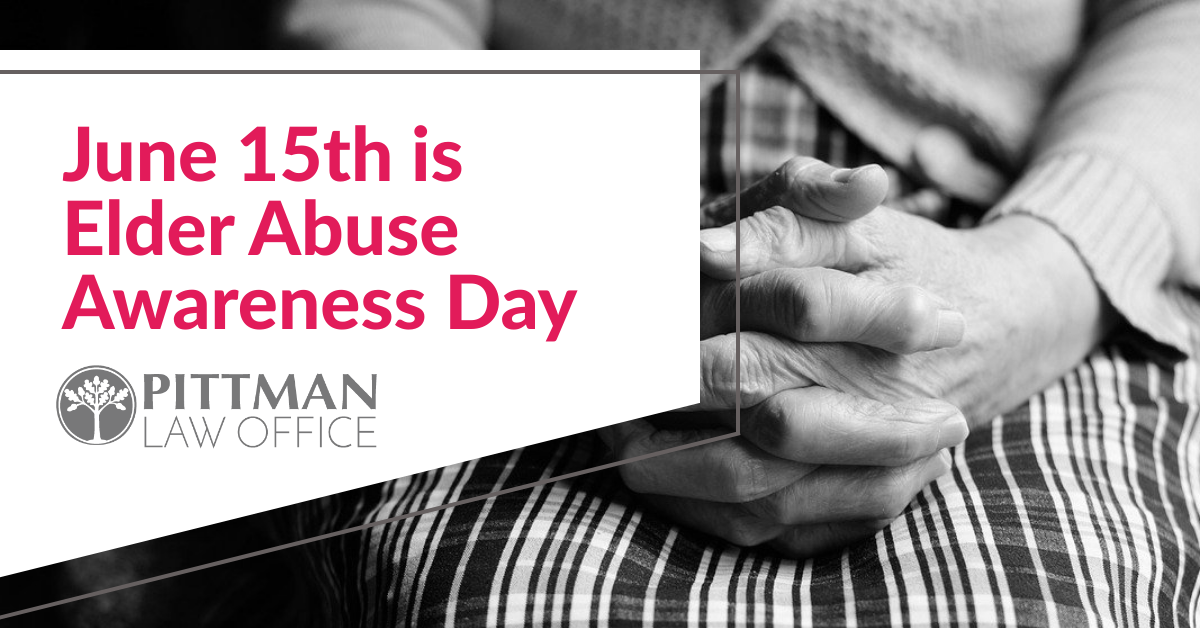June 15th is Elder Abuse Awareness Day and your friends at Pittman Law Office invite…
Access to Justice: Legal, Social and Economic Services for Older Victims of Sexual, Physical and Financial Crimes-2020.
List of the most common types of Elder Abuse
Physical Abuse
Emotional and Psychological Abuse
Sexual Abuse
Neglect and/or abandonment by caregivers
Financial Exploitation
Healthcare Fraud & Abuse
Sadly, in the study of 4,156 older adults, family members are the most likely perpetrators of financial exploitation of older adults, followed by friends and neighbors, followed by home care aides
Elder Abuse Prevention
Educate yourself to be aware of different types and signs of elder abuse
Check in on your elder loved ones often and this can be in person or by phone or by email
Respond immediately if you have concerns about a senior’s elder care staff or home care aides; trust your instincts
Conduct painstaking research of a potential nursing home and check carefully any red flags
If at all possible, visit regularly
Signs and Symptoms of Elder Abuse
Signs we can see include malnourishment and weight loss and poor hygiene and bed sores. Showing symptoms of depression and anxiety and confusion. Loss of money and or unexplained financial transactions; and disturbingly, physical signs of abuse, including cuts, bruises or broken bones, or caregivers that try to prevent you visiting alone with the senior. Sometimes the signs are difficult to recognize as many signs of elder abuse overlap with symptoms of mental deterioration or dementia but that does not mean the symptoms are to be ignored.
Fastest Growing form of Elder Abuse
Financial exploitation which entails some of the following:
Announcement of a prize the senior won but requires payment to claim
Phone and Charity fraud
What to Look For
Unusual patterns of spending and withdrawals from bank accounts and credit cards
Regular purchases of inappropriate items or items not normal for that individual to purchase
Unpaid bills and unpaid utilities
New “best friends” who are receiving gifts from a senior citizen
Where does Elder Abuse Occur
Most often in the home where the senior lives and in institutional settings like long term care facilities. Statistics indicate that 1 in 10 elder adults experience some form of abuse.
Do Something
If you suspect a senior is being financially abused you can report the possible abuse to your local Adult Protection Services and/or your State Attorney General’s Office and/or Local Police.
Document the extent of the abuse
If you are a senior make sure your affairs are in order and if not seek professional help in getting them in order, with the assistance of a trusted friend or relative if necessary.
As a senior, do not become isolated; make every effort to stay in regular touch with trusted friends and family,
As a senior, speak up if you become uncomfortable, in any way, with the care you are receiving
As a senior, tell at least one person; a doctor or a trusted family member of friend but do not confront the abuser by yourself
Feelings of shame occur as you struggle to believe the abuse is occurring but it is not your fault
Positive Methods in the Prevention of Elder Abuse
Assist in keeping elders engaged in their community. This may mean rides to church and a dinner invitation or access to community activities.
Support primary caregivers and spend time getting to know them and keeping elders away from high risk care givers. Look for signs of stress in caregivers and offer assistance to help
Learn about your community resources available to seniors.




